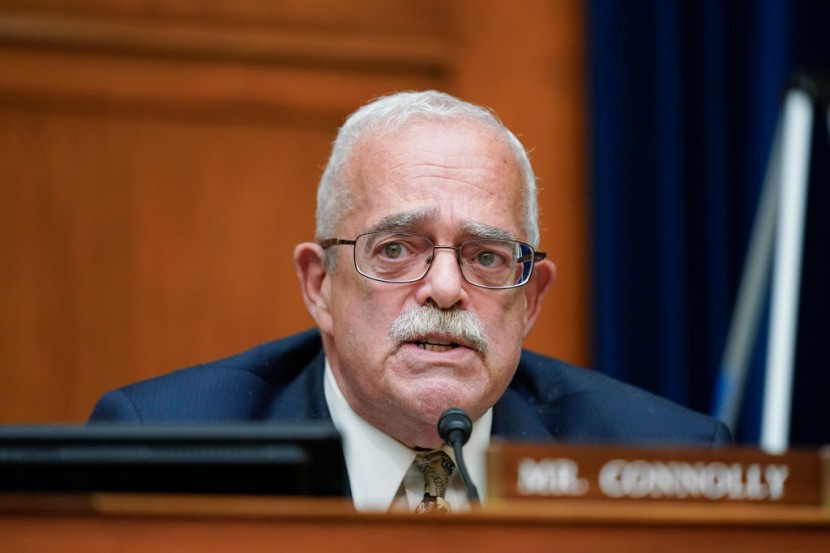US lawmakers said that their Capitol Hill colleagues were considering sanctioning Chinese companies they believed were helping Russia fuel its war in Ukraine, the first time they have directly blamed Beijing for the war.
US House Foreign Relations Committee member Rep. Gerald Connolly (D-VA) told CNBC over the weekend that lawmakers were working on following through what the European Union proposed last week.
The EU's provisions would mark the first direct penalties against Beijing despite long-held Western suspicions over its support for Russia's military operations.
"China has to understand that the same kinds of sanctions which are beginning to really take hold in Russia and are affecting Russian productivity, economic performance and quality of life, can also be applied to China," he told CNBC at the Munich Security Conference (MSC). "And frankly, China has a lot more to lose than Russia."
Sanctions Stinging Both Ways
While US sanctions could severely hurt a Chinese economy already in decline after a slower-than-anticipated COVID-19 recovery and crumbling real estate sector, it could also negatively affect the US, given its trade interdependence. Such a consideration has prompted caution from Washington in the past.
Nevertheless, Connolly said that the sanctions would not deter such penalties, which could come "very soon."
"My hope is the very threat of it - and the fact that the Europeans are really serious about this, which is a relatively recent development - ought to clarify some thinking in Beijing, I hope," he added. "So I would hope China would calculate carefully that there are consequences around the corner for supporting Russia's violence and depravity in Ukraine."

Congress Considers Sanctioning Pro-Russia Chinese Firms
Asked whether the US was considering similar sanctions on China as those proposed by the EU, US Senator Ben Cardin (D-MD) said that Congress was currently looking into options with the Biden administration.
"It's an area that we're looking at, and Congress is working with the administration as to how we can enforce the sanctions against Russia, and that will require greater cooperation of other countries," he said.
The EU's proposals of sanctioning pro-Russia Chinese firms would form part of the bloc's 13th sanctions package since the start of Russia's full-scale invasion of Ukraine and could be ready and have it scheduled to mark the war's second anniversary this week.
EU top diplomat Josep Borrell said on Monday (Feb. 19) that those plans had gained a new urgency in the wake of the death of Russian opposition leader Alexei Navalny on Friday (Feb. 16).
A CNBC investigation last September revealed that Chinese firms were playing a critical role in boosting Russia's military capabilities, including via the trade of goods for battlefield use in Ukraine. A separate January report of the outlet further found that China has become the key conduit in funneling critical Western tech into Russia.
Officials from both Beijing and Washington did not immediately respond to reporters' requests for comment.
China Slams Proposed US Sanctions
A US intelligence report stated that China "has also become an increasingly important buttress for Russia in its war effort, probably supplying Moscow with key technology and dual-use equipment used in Ukraine."
However, Beijing officials rejected such accusations, saying that its trade with the Kremlin constituted "normal economic cooperation" and was not targeting any "third party." China previously attempted to mediate the war in Ukraine by proposing a 12-point peace plan for the conflict that has yet to gain traction.
Chinese Foreign Minister Wang Yi told the MSC that trade should not be weaponized, saying that any attempts to limit trade ties with his country would be a "historic mistake."
"Those who attempt to shut China out in the name of derisking will make a historical mistake," he said, referring to existing restrictions implemented by the US to limit the trade of sensitive technologies.
Wang later met with his US counterpart Antony Blinken on the conference's sidelines, where he urged Washington to lift existing sanctions on Chinese firms and individuals - especially those involved in the human rights abuse of Uyghurs in Xinjiang - saying that the US should not hurt China's legitimate development rights.
© 2026 HNGN, All rights reserved. Do not reproduce without permission.








